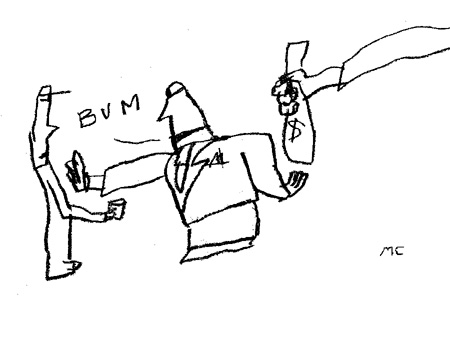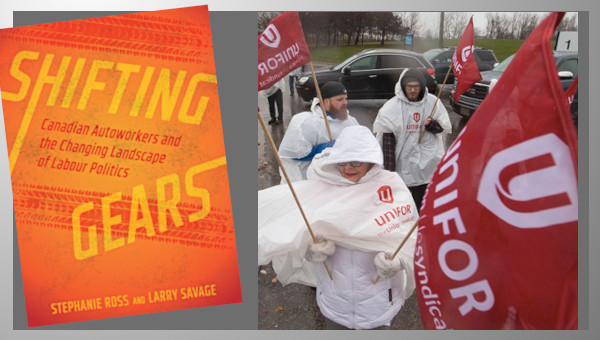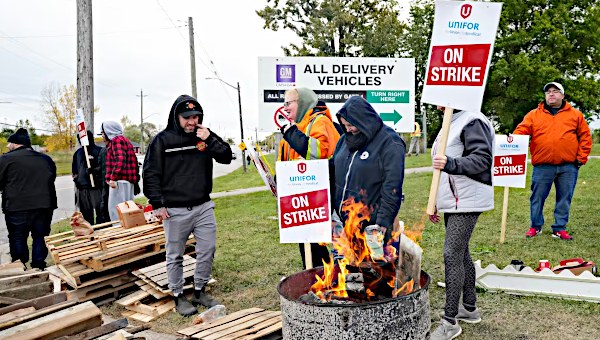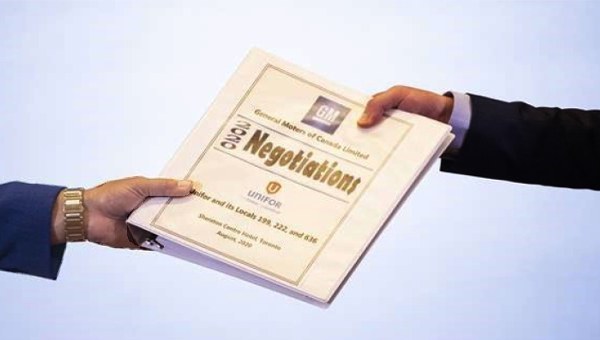Prime Minister Stephen Harper’s first economic policy initiative of 2013, which took him to Oakville in early January to trumpet yet another $250-million in auto subsidies, ought to raise some very fundamental questions. The heady free market rhetoric of recent decades was often cast in terms of the economic benefits associated with multinational corporations escaping the confines of nation states by being able to go global. In fact, what economic globalization has really been about has been the ability of these corporations to rely on the support of so many more states than ever before. And they have secured such state support while using the whip of competitiveness to discipline their workers – and to discard them when convenient.

GM’s plans for its Oshawa and CAMI plants need to be put in this context. J. D. Power and Associates has rated General Motors’ Canadian plants as among the best in the western hemisphere in six of its last 10 annual quality surveys. And Investment Canada proudly proclaims that our autoworkers are “highly-skilled” and known for “their strong work ethic, low turnover, reliability, quality and productivity.”
Since 2001, far from subsidies and concessions really protecting jobs, the number of workers employed in the auto sector in Canada fell from 119,000 to 66,000, with significant negative spinoffs throughout the economy. The plants closed were facilities with sophisticated equipment that employed workers with valuable and transferable skills, all of which could have been incorporated into major industrial conversion projects that could seriously address the environmental crisis.
Of course, the CAW’s concessions follow the lead of the UAW’s concessions south of the border. What is less often noticed is that, despite all the free market rhetoric in the U.S., corporations secure subsidies worth no less than $80-billion annually from state and local governments, as was revealed in a comprehensive investigation published in December by the New York Times. The subsidies were provided to both foreign and domestic multinational corporations, even as social services were eroded and infrastructure was allowed to deteriorate.
Yet they did not in fact lead to net job creation in the economy as a whole. Decisions by foreign corporations to invest in the U.S. were made as part of their global strategy, while American corporations, looking to relocate within the U.S., saw that whipsawing state and local governments gave them greater access to the public purse. In the end, hundreds of auto factory closures took place while subsidies were handed to many of the same companies to build new ones.
How far governments in the U.S. go in acting as the handmaiden of business was also seen in the bank bailouts. But this was not only a matter of emergency intervention. Just as the American state proved very active as a lender of last resort amidst the financial crisis so was it also very active in regulating finance before the crisis. Indeed, measured in terms of the number of regulatory agencies, laws on the statute books and pages of rules, the U.S. financial sector was probably the most regulated financial market in the world.
The U.S. and Global Capitalism
It was, however, a type of regulation that facilitated the massive expansion of finance in recent decades. Indeed, this was part and parcel of the general role U.S. governments have played in making global capitalism happen. Rather than withdrawing from state economic intervention in the face of global markets, the American state has played the most active role in promoting them – as well as in containing the crises they repeatedly have given rise to.
The bailout of the auto industry actually took the form of U.S. and Canadian governments becoming major owners of the corporations. Yet these governments bent over backwards to refrain from exercising control over key investment decisions, despite the sheer chutzpah shown by some of the private owners that benefited most from the bailout. The hedge fund that owned most of Delphi’s debt threatened to withhold crucial auto parts to GM, while at the same insisting on reducing jobs. Steve Rattner, the auto taskforce czar, likened this to “extortion demands by the Barbary pirates.”
The shameless rationale often put forward that corporations engage in such behaviour to meet their duty to ‘maximize shareholder value’ smacks of the old practice of mafia operatives justifying the shake down of mom and pop grocery stores. What is clear from the never-ending stream of subsidies and concessions, in good times and bad, is that maximizing shareholder value increasingly minimizes the public good. •





